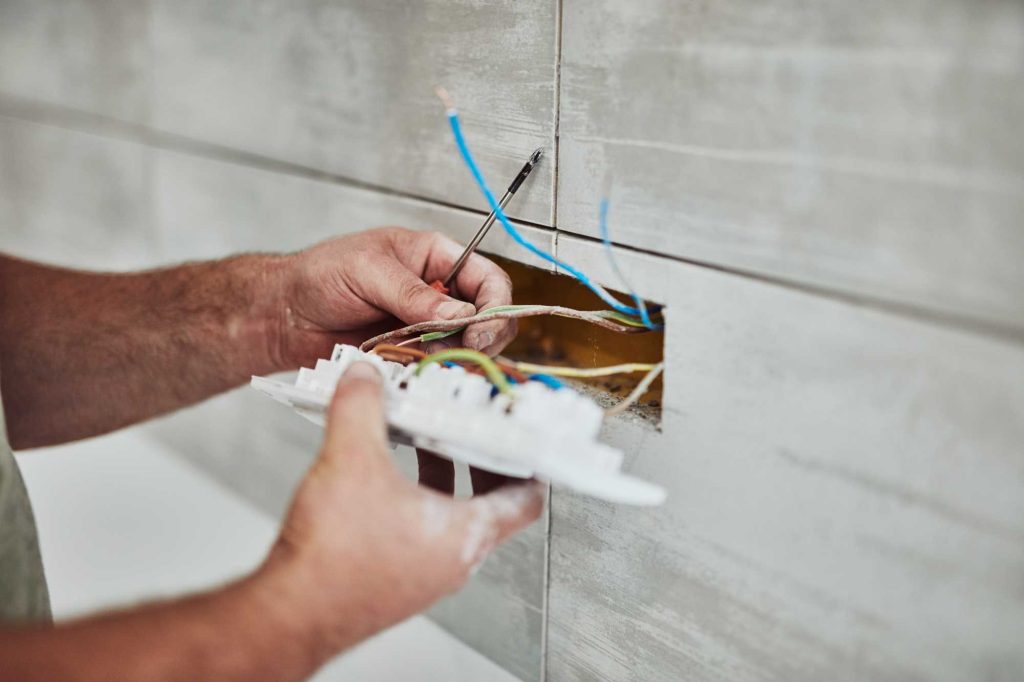Safety Hazards of Home Electrical Repairs Without Professional Certification
At NTX Electric, we’ve served North Texas homeowners and businesses for over 20 years, witnessing firsthand the dangerous aftermath of DIY electrical projects gone wrong. Our team of licensed electricians brings not only technical expertise to every job but also a genuine commitment to your family’s safety and peace of mind. What truly distinguishes our approach is our educational focus—we believe in helping our customers understand the “why” behind electrical safety standards rather than simply citing code requirements. Each of our electricians undergoes rigorous ongoing training to stay current with evolving safety protocols and technology advancements. When you choose NTX Electric, you’re not just getting a service provider; you’re partnering with electrical safety advocates who prioritize proper installation and repairs that protect your home for years to come. We take pride in our transparent pricing model with no hidden fees and our emergency response capability that ensures North Texas residents never face electrical hazards alone, regardless of when they occur.

The Real Dangers: Why Electrical Work Isn’t Like Other DIY Projects
While many homeowners successfully tackle painting, basic plumbing, or carpentry projects, electrical work presents unique hazards that can have immediate and devastating consequences. Unlike a leaky faucet or crooked shelf, electrical mistakes aren’t always immediately apparent and can create dangerous conditions that remain hidden behind walls.
Immediate Safety Risks
The most obvious danger of DIY electrical work is the risk of electrical shock. Even with the power seemingly turned off at the breaker, improper testing or unknown circuit connections can leave wires energized. A momentary contact with a live wire can deliver a shock ranging from painful to fatal, with household current (120V) being more than sufficient to cause cardiac arrest under certain conditions.
Fire hazards represent another critical risk. The National Fire Protection Association reports that electrical failures or malfunctions were the second leading cause of home fires in the United States, resulting in approximately 35,000 home fires annually. Improper wire connections, incorrect circuit loading, or using the wrong gauge wire can create hot spots within walls that may smolder for hours or days before erupting into flames.
Long-Term Consequences
Beyond immediate safety concerns, improper electrical work often creates code violations that remain hidden until a home inspection during a future sale. These discoveries frequently require extensive remediation at substantial cost and can delay or even derail real estate transactions.
Insurance implications present another significant concern. Many homeowners are unaware that their insurance policies typically exclude coverage for damages resulting from unpermitted electrical work. In the event of a fire or electrical damage, insurance companies may deny claims if they determine non-licensed individuals performed the electrical installations or modifications.
The challenging weather conditions we face in North Texas, from summer heat waves to winter ice storms, place additional stress on electrical systems. Professional electricians understand how to install systems that account for these regional challenges, whereas DIY work often fails to consider these factors.
Common DIY Electrical Mistakes We See in North Texas Homes
Through our service calls across Dallas, Fort Worth, Plano, and surrounding communities, our technicians regularly encounter specific DIY electrical mistakes that create dangerous conditions:
Overloaded Circuits
Perhaps the most common DIY mistake involves adding new outlets or fixtures to existing circuits without calculating the total load. Modern homes with multiple high-draw appliances like air conditioners, refrigerators, and entertainment systems require careful circuit planning. We frequently find situations where homeowners have daisy-chained power strips or added outlets that push circuits well beyond their safe capacity, especially in older homes throughout Arlington and Irving neighborhoods where electrical systems were designed for much lower power demands.
Improper Wire Connections
Secure connections are fundamental to safe electrical work, yet our technicians routinely discover loose wire nuts, overtightened terminal screws that break wire strands, or connections made without proper wire stripping. These issues create resistance points that generate heat and eventually lead to system failure or fires. In newer developments across Frisco and McKinney, we’ve even found instances where homeowners attempting to install smart home devices have damaged low-voltage and line-voltage systems by incorrectly mixing the two.
Incorrect Wire Sizing
Each electrical circuit requires specific wire gauges based on the expected current and distance. DIYers often use whatever wire they have available rather than the correct size for the application. Undersized wires can overheat when carrying more current than they’re rated for, while oversized wires may not properly connect to terminals. The extreme temperature variations we experience in North Texas make proper wire sizing even more critical, as heat can exacerbate problems with marginally undersized conductors.
Missing GFCIs and AFCIs
Modern electrical codes require Ground Fault Circuit Interrupters (GFCIs) in wet locations like kitchens, bathrooms, and outdoor areas, and Arc Fault Circuit Interrupters (AFCIs) for bedroom circuits. These specialized devices provide critical protection against shock and fire hazards. We frequently find DIY renovations, particularly in older Garland and Mesquite homes, where these essential safety devices were omitted or improperly installed, leaving families without crucial protection.
Improper Grounding
Proper grounding is essential for electrical safety, yet it’s often misunderstood or improperly implemented in DIY projects. Our technicians have discovered numerous creative but dangerous “solutions” to grounding problems, from wrapping wires around water pipes to connecting ground wires to gas lines (an extremely dangerous practice). The clay-heavy soils common throughout North Texas can affect grounding effectiveness, requiring specialized knowledge that most homeowners don’t possess.
When to Call a Professional: Recognizing Your Limits
While the desire to save money through DIY projects is understandable, certain electrical tasks should always be left to licensed professionals:
Panel Work and Service Upgrades
Any work involving the main electrical panel carries significant risk and requires extensive knowledge of code requirements. This includes panel replacements, service upgrades, or adding new circuits. Considering the growing electricity demands in North Texas homes—particularly during our extreme summer months when air conditioning systems run constantly—professional panel assessments and upgrades are increasingly important.
New Circuit Installation
Adding entirely new circuits for renovations, additions, or new appliances requires careful load calculations, proper wire sizing, and appropriate protection. Professional electricians understand how to integrate new circuits into existing systems without overloading panels or creating potential hazards.
Outdoor Electrical Work
Outdoor installations face unique challenges from weather exposure and water contact. Professional electricians understand the specialized materials and installation techniques required for outdoor lighting, pool systems, and landscape features to withstand North Texas thunderstorms, summer heat, and occasional winter freezes.
Signs Your Home Needs Professional Attention
Certain warning signs indicate potential electrical problems requiring immediate professional assessment:
- Frequently tripping breakers or blown fuses
- Flickering or dimming lights
- Buzzing sounds from outlets or switches
- Warm or discolored outlets or switch plates
- Burning odors with no identifiable source
- Mild shocks when touching appliances
These symptoms often indicate serious underlying issues that could lead to system failure or fire if not properly addressed by a qualified electrician.
Protect Your Home and Family with Professional Electrical Services
Your home’s electrical system is too important to risk with DIY repairs or installations. At NTX Electric, our licensed professionals bring the training, tools, and expertise needed to ensure your electrical system is safe, efficient, and code-compliant.
Contact us today to schedule a comprehensive electrical safety inspection or discuss your upcoming electrical project. We provide prompt service throughout the North Texas region. Don’t take chances with electrical work—trust the professionals who put your safety first.
